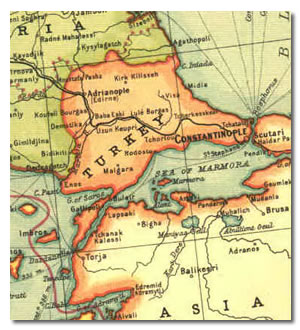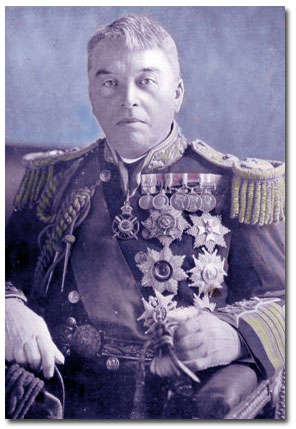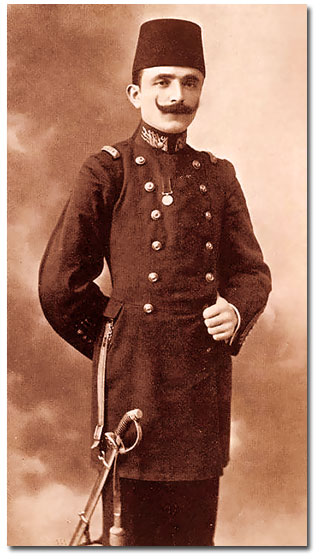|

STRAITS
British Policy towards the Ottoman Empire
and the Origins of the Dardanelles Campaign
Synopsis
On 19 February 1915 the guns of the massed
Anglo - French fleet off Cape Helles opened
fire on targets on the European and Asiatic
shores of the Ottoman Empire. The
Dardanelles campaign had begun. The course
of the struggle that began that day has been
charted in detail elsewhere, but there has
hitherto been little in - depth analysis of
how it came about. Turkey’s pre - war
alignment with Germany culminated with the
signatures of the German Ambassador and
Turkish Grand Vizier on the formal Treaty of
Alliance on the afternoon of Sunday, 2
August 1914, but for months the treaty
remained no more than a scrap of paper. The
Turks mobilized only as fast as their
moribund economy allowed while at the same
time continuing to give the outward
appearance of an anxious, if hardly
disinterested, neutral.
The menacing days of August passed; the
Turks prevaricated, neither in the War nor
immune from it. Unable to contain himself
any longer, the First Lord of the Admiralty,
Winston Churchill, actively sought Greek co
- operation for a planned major offensive
against the Turks at the Dardanelles. His
plea for assistance reached the British
Officer at the head of the Greek Navy, Rear
- Admiral Mark Kerr, who set impossible
conditions which he knew would result in the
proposal being rejected in London. With his
plans having thus gone awry, Churchill
turned his gaze away from the plain of Troy
— temporarily.
By October, 1914 the patience of the Germans
had also snapped. With the connivance of the
Turkish Minister of War, but against the
wishes of the majority of the Turkish
Cabinet, the German Admiral at the head of
the Turkish Navy single-handedly forced
the issue. At the helm of the magnificent
battle cruiser Goeben, which had escaped
from the pursuing British Squadron in the
first days of the war and had sought refuge
at Constantinople, Admiral Souchon steamed
into the Black Sea and deliberately shelled
Russian ships, ports and shore
installations. The Turks, reluctant to the
last, were finally propelled into the war.
Yet, would this outcome have eventuated
without the presence of Souchon and Goeben?
The Turkish fleet by itself was too weak to
risk a sortie in the Black Sea. Without
Goeben could the issue have been forced? Now
that the Turks had become involuntarily
embroiled in the War, Churchill’s eyes once
more turned eastward.
The first volume of the STRAITS Trilogy,
Superior Force, traced the escape of the
German battle cruiser Goeben and her consort
Breslau in the first days of the War. After
seeking refuge inside the Dardanelles, the
German admiral in command eventually
manoeuvred his ships into the Black Sea and
deliberately shelled Russian ships and
ports. The Turks, reluctant to the last,
were finally propelled into the War. Yet,
would this outcome have eventuated without
the presence of Goeben? The Turkish fleet by
itself was too weak to risk a sortie in the
Black Sea. Without Goeben could the issue
have been forced?
In this second volume I attempt to provide a
comprehensive appraisal of the many factors
leading up to the Dardanelles campaign.
Among the factors explored are:
-
The failure of pre - war
British diplomacy in the Ottoman Empire
and the sinister influence operating
from within the British Embassy in
Constantinople.
-
The nature of the Young
Turk régime after the revolution of
1908.
-
The persistent British
rejections of the pre - war Turkish
approaches for an alliance.
-
The extent of German
infiltration in the Ottoman Empire.
-
Churchill’s rôle in the
1914 crisis, which included seizing the
property of a neutral state.
-
The escape of Goeben and
Breslau and their subsequent activities.
-
The choices facing the
Turkish Cabinet in the period from
August to November 1914.
-
The higher direction of
the war in the East and the efforts made
to buy Turkey out of the war.
-
The deliberate attempt
by the British head of the Greek Navy to
prevent Greek involvement in any Allied
campaign at Gallipoli.
-
A new interpretation of
the “Drift to the Dardanelles” examining
the extent to which the campaign
originated as a result of personal
friction between Churchill and Fisher.
- The strategic implications of the
Navy’s change to oil.
STRAITS takes the opening bombardment at the
Dardanelles not as the starting point but as
its culmination in an endeavour to explain
how it was that Turkey was aligned with
Germany — a ruinous alliance which was by no
means preordained. British diplomatic policy
towards the Ottoman Empire failed
comprehensively when the result could have
been so different. Why, for example, was
every Turkish appeal for an alliance with
Britain rebuffed? The Young Turk revolution
of 1908 presented the British Foreign Office
with a quandary — to support the new régime,
which had successfully restored the
constitution, or continue to remain aloof,
as had been the policy during the reign of
Abdul the Damned. Support was grudgingly
provided but the improved British position
at the Sublime Porte was jeopardized by two
events: the new Ambassador, who was deeply
antagonistic to the new régime, and the
Anglo - Russian convention which meant that
the British Foreign Secretary had to try
somehow to support the Turks without
alienating the Russians.
The common thread running through the book
is the struggle to control the Straits of
the Dardanelles and Bosphorus from the
period when the British Squadron at Malta
commanded the Mediterranean Sea unopposed at
the turn of the century through to the
disintegration of the Ottoman Empire first
as a result of the Turco - Italian and
Balkan Wars and then following Turkey’s
forced, and ultimately disastrous, entry
into World War I. This struggle encompassed
Russian aspirations, Greek ambition, French
colonial ardour and British Imperial and oil
considerations — all underpinned by the
constant desire of the Turks themselves to
prevent the collapse of their Empire.
British diplomatic policy towards the
Ottoman Empire failed comprehensively when
the result could have been so different.
|

Winston Churchill

Admiral Sir John Fisher

Enver Pasha
|